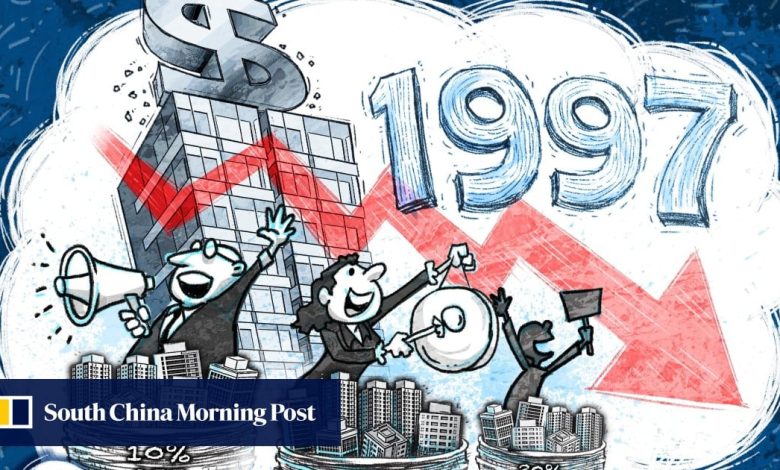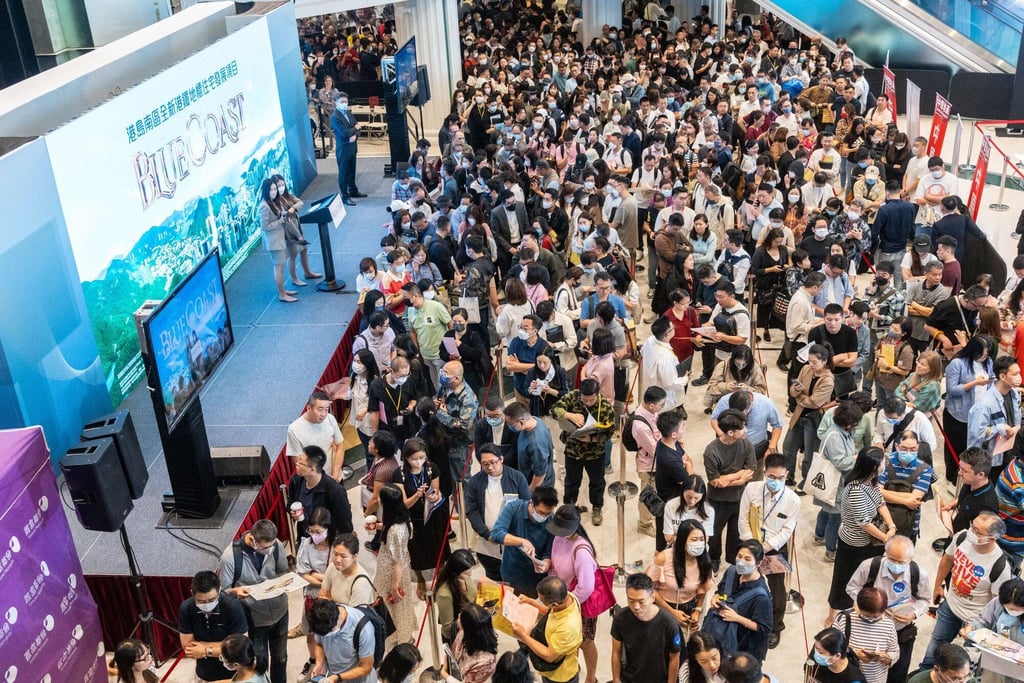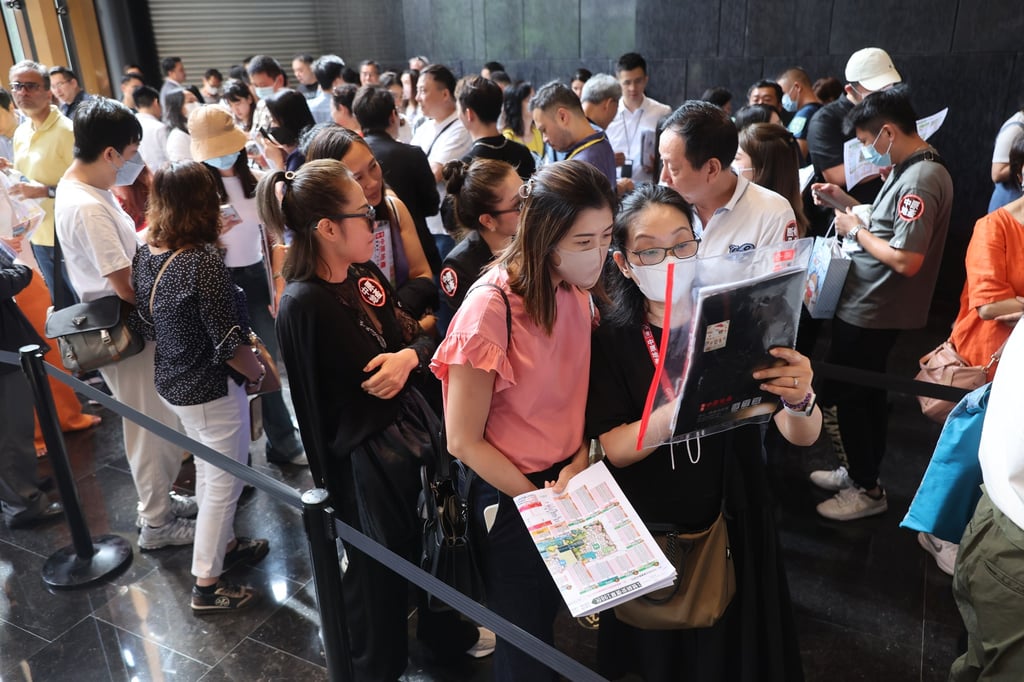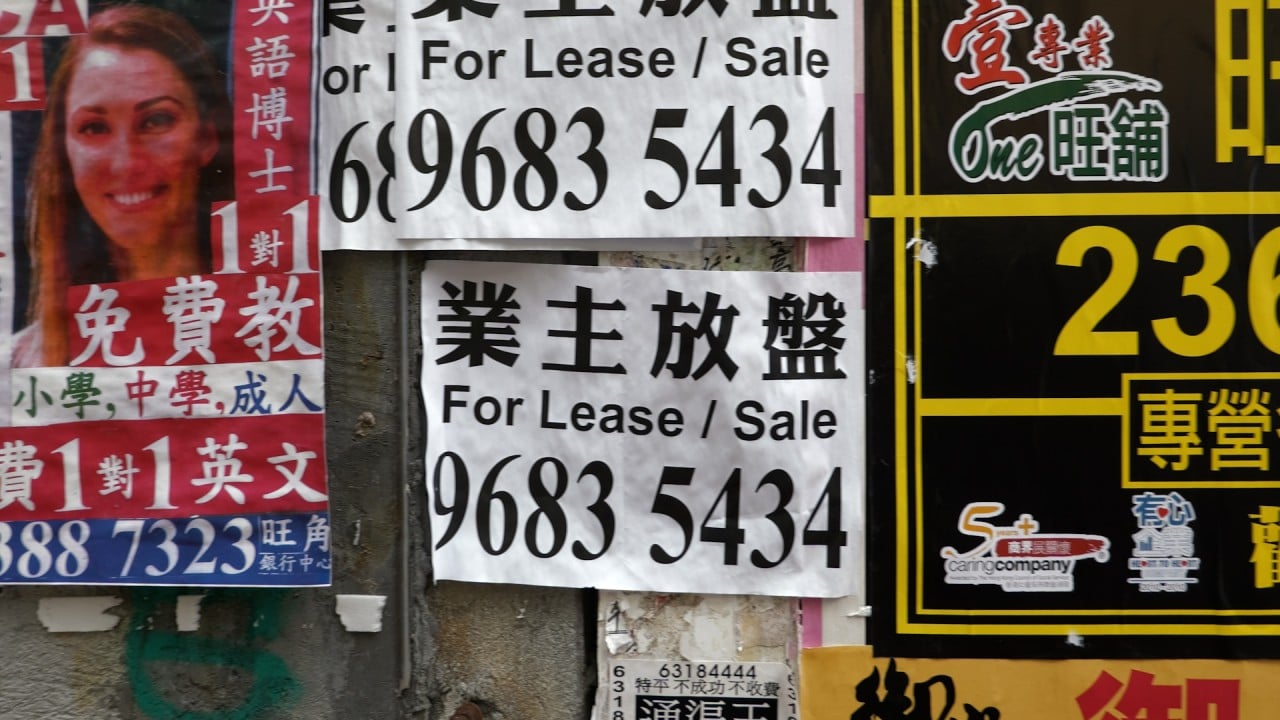Hong Kong’s 2024 property slump feels like it’s 1997 all over again – or is it?

Tsoi, who has spent four decades in Hong Kong’s property industry, said he sees history repeating in the topsy turvy market. Major developers like CK Asset had lavished discounts since the start of the year, driving prices down by about 25 per cent from their September 2021 peak.
“What we are seeing now is similar” to the collapse in the late 1990s, Tsoi said in an interview with the Post. “The slowdown in transactions had started since 2019, and developers had joined the price war in the first half of this year to offload their inventory.”
The discount war is taking place amid a housing glut in the city. Developers launched 9,419 new homes in the first half, equal to 87.6 per cent of the total flats sold in the whole of last year, according to data compiled by CBRE.
The removal of the so-called demand curbs unleashed a spurt of deals. Buyers who had been waiting patiently on the sidelines dived in, sending the city’s contracted sales value soaring by 33 per cent to a three-year high of HK$112 billion during the first six months of 2024, according to Jefferies.

“We are still facing an abundant supply of new flats in the short term,” said Norry Lee, JLL’s senior director of project strategy in Hong Kong.
About 40,000 new homes are available this year, comprising 23,000 existing units in the market, and another 20,000 units which will be ready to launch, Lee said.
“Prices will only stabilise when the [inventory] drops to around 20,000 units”, as that means developers have offloaded to a sufficiently comfortable cash position to resume raising prices, Lee said.
Has Hong Kong’s slump found a bottom?
Some analysts do see signs of a pause in the price war. “Major developers are no longer reducing prices [or] chasing their targets because they have generated enough cash” through the sales tactics in the first half, said Mark Leung, UBS’ greater China property research analyst.
Aggressive discounts were also the bait used by developers to test the market, attract buyers from the sidelines and generate buzz.
“Low prices only applied to a portion of units in [many] projects, as [developers] wanted to sell them first to gauge the buyers’ sentiment [before] raising the prices of the remaining units”, said Chau Kwong-wing, director of the Ronald Coase Centre for Property Rights Research at the University of Hong Kong.

The Pavilia Forest I project, which overlooks the typhoon shelter on the former runaway of the old Kai Tak airport, was a case in point.
The first 60 flats launched at HK$17,188 per sq ft in early July, about a third lower than the nearby Monaco Marine launched in April at HK$24,833 per sq ft. The initial sale received 20 bids for every available flat, helping the developer rake in HK$1.7 billion in receipts over nine days.
Prices increased over subsequent batches of sales, with the recent launch of Azure Forest tagged at HK$19,242 per sq ft, more than 10 per cent higher than the first phase.
“I don’t think developers wanted to clear all their stock and retreat”, Chau said. “Most of them are maintaining their portfolio [without] influencing their financial situation because of the outlook, and they need to prepare their holding power over the medium to longer term.”
Phase II of Hong Kong’s discount war
Hong Kong’s property discount war is now in its second stage, involving mostly small developers who are relying on sales to generate cash. “The disruption to the market is insignificant,” UBS’s Leung said.
Lesser known developers who lack the massive marketing budgets of their bigger competitors have to resort to discounts as the only way to attract attention, said Will Chu, senior research analyst for Hong Kong and China property at CGS International Securities.
“For them, this is the only way to get cash and repay their debts, rather than holding on to their inventory and paying high interests,” Chu said.
Continental Properties had to cut the price of its Cheung Sha Wan project by 17 per cent after its flats sat unsold for two weeks following its late-June launch.
Some Hong Kong developers are even resorting to stealth discounts, offering cash rebates of up to 50 per cent.
As one of the most expensive housing markets in the world, Hong Kong’s property market is still facing downward pressure in the short term, but what lies ahead is not totally bearish, according to analysts.
The gauge of lived-in homes compiled by Centaline Property Agency Centa-City Leading Index (CCL) is still correcting, with the June number falling 1.3 per cent from a month earlier to 142, down 3.9 per cent this year.
Consultancy firms and banks generally expected a 5-10 per cent dip in home prices this year due to high levels of inventory and high interest rates. Mortgage rates will only come down in 2025 even if the Fed starts cutting rates this year.
JLL’s Lee said it would take about 18 months to digest the stock with a rate cut expected in the second half, based on the expectation that first-hand transactions can reach 16,000 to 18,000 for the whole year.
The housing market saw an uptick in property transactions as soon as the government removed all property curbs in end-February due to pent-up demand, but the demand has been consumed and the momentum has diminished earlier than expected, according to experts.
The recent slowdown is due to uncertainty in the interest rate movement and also due to banks’ caution in lending, they said.
“Banks tend to be more selective with borrowers and prioritise quality over quantity,” said CBRE’s Executive Director of Valuation Eddie Kwok. “We expect banks to further increase the risk premium via increasing the mortgage rate for inferior assets.”
But strong rental activities could support asset yield and attract investment demand, in turn helping sell-through in the longer term, Chau said.
The demand for the rental market will keep growing as more students and talents from mainland China through various schemes arrive in the city, which should boost rents, he said.
“This can reduce the near term downward pressure in home prices,” he said, adding that rental yield has to rise above 4 per cent to stabilise property prices.
Will China’s new arrivals rescue Hong Kong’s property?
Demand for homes still has room to grow and the new supply will begin to decline from 2026, the market will adjust supply itself, UBS’s property analyst said.
Still, the roller coaster ride of 26 years ago may not be repeated this time, as the cost of money is higher now, analysts said. Mainland China’s economy is growing at half the annual pace of two decades ago, putting a limit on the benefit that can spill over to Hong Kong, they said.
“It’s not surprising that home prices will go up by that time, but it has to take into consideration the economic environment,” Leung said. “Developers have been actively bidding for government land, signalling that they are not too pessimistic about the outlook.”
All said and done, there is reason for optimism, said Tsoi, who has weathered the boom-and-bust cycles of the world’s most expensive property market.
“I have been through the ups and downs for decades and know the market has cycles,” he said. “Property prices will trend down this year but it’s time to buy. When the market rebounds, you would have missed the best chance.”






